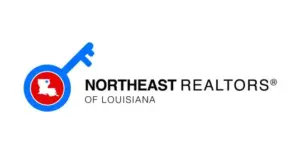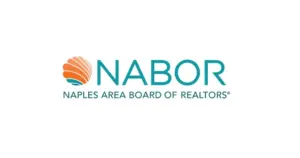Real estate has always walked a fine line with fair housing laws, but the past few years have shown just how serious regulators have become about enforcement.
If you think a poorly worded listing description or a casual comment to a buyer won’t come back to haunt you, think again.
Between 2023 and 2025, we’ve seen major brokerages pay millions in settlements, agents lose their licenses, and new technical safeguards pop up in MLS systems across the country.
The Fair Housing Act prohibits discrimination based on race, color, religion, sex (including sexual orientation and gender identity), national origin, disability, and familial status. Many states have added their own protected classes, such as source of income, marital status, and age.
This isn’t just about avoiding lawsuits. It’s about understanding how every listing you write, every question you answer, and every piece of data you share can either open doors for clients or slam them shut.
What’s at Stake: Legal Risks That Could End Your Career
Fair housing violations carry penalties that can devastate a brokerage or end an agent’s career.
First-time Fair Housing Act violations can cost around $16,000 in civil penalties. Repeat violations jump to $37,500 or even $65,000 per offense. These fines get levied per incident, so multiple complaints about different listings can add up fast.
But fines are just the beginning. Private lawsuits can demand actual damages, punitive damages, and attorney fees. Redfin paid $4 million in 2022 to resolve allegations that its minimum home price thresholds denied equal service in minority communities.
HUD and the Department of Justice don’t mess around. State Attorneys General have gotten particularly aggressive. In March 2023, New York’s Attorney General reached a settlement with Coldwell Banker over alleged racial steering. The company paid $30,000 in penalties, funded fair housing enforcement programs, provided mandatory training, and created a public complaint form.
In New Jersey, Coldwell Banker settled four cases in 2024 involving Section 8 discrimination, paying $40,000 and agreeing to extensive procedural changes after testers caught agents refusing to show to voucher holders.
State real estate commissions can discipline licensees for civil rights violations, including up to and including license revocation. NAR’s Article 10 forbids discriminatory practices, and proven violations can result in the loss of your REALTOR® membership. Starting in 2025, NAR requires every member to complete two hours of fair housing training every three years. Miss that training? Your membership gets suspended.
Writing Listings That Won’t Land You in Court
The most critical rule for MLS listings: describe the property, not the people.
Your listing description is syndicated to Zillow and Realtor.com, making it a public advertisement subject to fair housing laws. One phrase that suggests a preference based on protected characteristics can trigger a complaint.
Words That Will Get You in Trouble
“Family-friendly” sounds innocent but suggests a preference for families with children, which can discourage singles or couples without kids. That’s familial status discrimination. Instead of saying “perfect for a family,” describe the features: “four-bedroom home with a large backyard.”
Religious references are another minefield. Mentioning proximity to a specific church or temple can be interpreted as religious steering. Just list the distance to general amenities instead.
Terms like “safe neighborhood” or “quiet, upscale area” might seem neutral, but they have historically been used as proxies for racial composition. Better to describe actual features: “Located on a cul-de-sac” or “Home includes security system.”
Here are key phrases to avoid:
- “No children” or “Adults only” – Familial status discrimination
- “Great family home” – Implies preference, discourages others
- “Near [specific church/temple]” – Religious steering
- “Safe neighborhood” – Historically coded language, subjective
- “Perfect for young couples” – Could discriminate by marital status or age
- “Not wheelchair accessible” – State facts neutrally: “Second floor unit, no elevator”
Many MLSs now use automated filters to catch these terms before your listing goes live. Canopy MLS actively monitors listings and sends notices when agents use prohibited language.
What to Say Instead
Focus on concrete, measurable features: number of bedrooms, square footage, specific amenities, architectural style, distance to major roads, and zoning information. Notice what’s missing? Any reference to people, neighbors, or community characteristics.
For more guidance, check out HUD’s Fair Housing Advertising resources.
Answering Client Questions Without Steering
Writing compliant listings is one thing. Handling buyer questions in real time is where many agents stumble.
“Is This a Safe Neighborhood?”
Your personal opinion about safety might be based on unconscious biases. Even if you genuinely believe a neighborhood is safe, characterizing it that way for a client can be seen as steering.
The right approach: provide resources, not opinions.
“I can’t define ‘safe’ for you, as that means different things to different people. But I can direct you to the police department’s crime statistics database. You might also want to visit the area at different times of day.”
This acknowledges the question while providing factual resources and putting decision-making power in the client’s hands.
School District Questions
NAR advises agents to avoid opining on school quality. When a client asks, “Are the schools good?” don’t say, “Oh yes, this district is excellent.”
Better response: “This home is zoned to Jefferson Elementary and Lincoln High School. I can give you links to the state Department of Education website and GreatSchools.org, where you can research test scores and parent reviews.”
Demographic Questions
Sometimes clients ask directly: “Do a lot of [specific ethnic group] live here?”
Polite response: “I can’t discuss the demographics of residents in any area. That’s not relevant to the property itself. If you want demographic data, the U.S. Census Bureau website has that information publicly available.”
If the client pushes back, stand firm. Fair housing laws prohibit you from discussing neighborhood demographics in the context of housing transactions.
The National Association of REALTORS® offers extensive resources on handling these types of questions correctly.
Equal Service for Every Client
Use the same intake process for every buyer. Ask the same questions about budget, preferred location, and must-have features. Don’t make assumptions about what someone can afford based on protected characteristics.
The 2019 Newsday investigation found agents were giving white buyers more listing options than Black and Hispanic buyers with identical financial qualifications. That’s textbook discrimination, and it costs brokerages millions in settlements.
Document your client interactions. Keep notes showing you provided the same information to clients with similar criteria, regardless of race or religion.
The Pocket Listing Problem
NAR’s Clear Cooperation Policy requires that any property a REALTOR® publicly markets must be listed on the MLS within one business day. This policy exists partly to serve fair housing goals.
Pocket listings can limit access for buyers from different backgrounds. If a home is only shown quietly to one agent’s network, minority buyers might never know it’s available. HUD has indicated that such selective marketing could violate fair housing laws if it results in disparate impact.
Marketing Broadly
Use the MLS. Syndicate to major portals. Always include the Equal Housing Opportunity logo or slogan.
Be careful with social media advertising. Meta settled with the DOJ in 2022 over allegations that its ad algorithm was discriminating against people seeking housing. If you advertise on Facebook or Instagram, use their special housing ad categories that limit targeting options. Don’t use demographic filters that could exclude protected classes.
Real Cases That Changed the Game
Coldwell Banker’s Costly Lessons
The New York case in March 2023 stemmed from a major undercover investigation. Testers documented how agents treated buyers differently based on race. The settlement required the company to implement a public complaint process, fund fair housing enforcement programs, and mandate training for every agent.
The 2024 New Jersey case focused on income discrimination. Testers caught Coldwell agents saying “The landlord won’t accept Section 8” or ignoring voucher holders’ inquiries. The settlement required specific staff to assist agents in processing voucher applications.
Redfin’s Digital Redlining
Redfin’s minimum service thresholds disproportionately affected minority neighborhoods. The National Fair Housing Alliance argued this was digital redlining. Redfin paid $4 million and also voluntarily removed crime data from its listing pages, saying crime statistics carry too significant a risk of reinforcing racial bias.
Realtor.com followed suit. By 2023, both major portals had scrapped crime maps.
Meta’s Algorithm Overhaul
The DOJ alleged that Facebook’s ad delivery system was selectively showing housing ads based on protected characteristics. Even without conscious human bias, the algorithm created discriminatory outcomes.
Meta’s settlement required them to create a “variance reduction system” to ensure housing ad audiences are balanced. The company paid $115,054 and submitted to DOJ monitoring.
For brokers, this is a warning: if you use algorithms or AI for advertising, tenant screening, or lead generation, those systems must comply with fair housing laws. “The algorithm did it” is not a defense.
The Department of Justice has signaled it will pursue more algorithmic discrimination cases.
How Your MLS Protects You
Automated Word Filters
Many MLSs scan listing remarks for prohibited terms before publication. When you submit a listing containing flagged words like “no children” or racial terms, the system alerts you. These filters provide a first line of defense.
55+ Community Verification
The Housing for Older Persons Act allows communities to restrict residency to people 55 and older if they meet strict requirements. But you can’t just slap a “55+” designation on any property.
MLSs require verification. If you want to mark a property as 55+, you need to submit documentation proving it meets HOPA requirements. Misusing the designation is advertising illegal familial status discrimination.
No Demographic Search Filters
Notice what you can’t do in MLS search tools: filter by a neighborhood’s racial, religious, or ethnic composition. That’s by design.
School district information is still available, but there’s growing recognition that school ratings can serve as proxies for demographics. Some brokerages have removed the ability to search by school rating to avoid steering implications.
Compliance Reporting Systems
Most MLSs now have a “Report Listing” button that lets agents flag potential fair housing violations. The MLS compliance team investigates and typically contacts the listing broker to request corrections.
Staying Compliant in the Digital Age
In April 2024, HUD released guidance on artificial intelligence in housing. If your brokerage uses AI for lead scoring, tenant screening, or automated valuation, those systems need to be audited. The Meta case proves regulators will go after algorithmic discrimination.
When advertising on social media:
- Use housing-specific ad categories
- Avoid demographic filters that could exclude protected classes
- Target based on interests rather than age, gender, or other protected traits
- Include the Equal Housing Opportunity logo
NAR’s 2025 requirement for two hours of fair housing training every three years reflects how seriously the industry takes compliance. Use the training to stay current on HUD guidance and best practices.
For ongoing education:
- HUD’s Office of Fair Housing and Equal Opportunity
- National Fair Housing Alliance resources
- NAR’s fair housing toolkit
Building a Culture of Compliance
Write down your fair housing procedures. How should agents respond to questions about schools? What’s the process for verifying 55+ communities? Who reviews listing descriptions before they go live?
Before any listing goes public, have a second person review the remarks. Look specifically for any reference to people rather than property features, subjective characterizations, or family-oriented language.
Keep records of what information you provided to clients. This documentation protects you if you’re ever accused of treating clients differently based on protected characteristics.
Make it safe for agents to ask questions about fair housing scenarios. If someone doesn’t know how to handle a client question, they should feel comfortable asking a broker rather than winging it and potentially violating the law.
Fair housing compliance isn’t getting easier, but following these laws also makes good business sense. When you market broadly, you reach more potential buyers. When you treat all clients equally, you build a reputation for professionalism. Start by reviewing your current active listings and fixing any problematic language. Then commit to ongoing education and build systems that prevent violations before they happen.
Table of Contents







